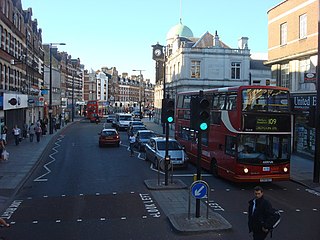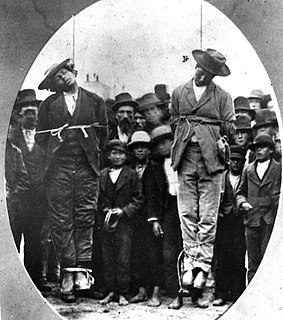Related Research Articles
A coroner is a government or judicial official who is empowered to conduct or order an inquest into the manner or cause of death, and to investigate or confirm the identity of an unknown person who has been found dead within the coroner's jurisdiction.

Criminal justice is the delivery of justice to those who have been accused of committing crimes. The criminal justice system is a series of government agencies and institutions. Goals include the rehabilitation of offenders, preventing other crimes, and moral support for victims. The primary institutions of the criminal justice system are the police, prosecution and defense lawyers, the courts and prisons.
An inquisitorial system is a legal system in which the court, or a part of the court, is actively involved in investigating the facts of the case. This is distinct from an adversarial system, in which the role of the court is primarily that of an impartial referee between the prosecution and the defense. Inquisitorial systems are used primarily in countries with civil legal systems, such as France and Italy, or legal systems based on Islamic law like Saudi Arabia, rather than in common law systems. It is the prevalent legal system in Continental Europe, Latin America, African countries not formerly under British rule, East Asia, Indochina, Thailand, the Philippines, and Indonesia. Most countries with an inquisitorial system also have some form of civil code as their main source of law.
The Central Park jogger case was a criminal case in the United States over the aggravated assault and rape of a woman in Manhattan's Central Park on April 19, 1989, occurring at the same time as an unrelated string of other attacks in the park the same night. Five black and Latino youths were convicted of assaulting the woman, and served sentences ranging from six to twelve years. All later had their charges vacated after a prison inmate confessed to the crime.

A justice of the peace (JP) is a judicial officer of a lower or puisne court, elected or appointed by means of a commission to keep the peace. In past centuries the term commissioner of the peace was often used with the same meaning. Depending on the jurisdiction, such justices dispense summary justice or merely deal with local administrative applications in common law jurisdictions. Justices of the peace are appointed or elected from the citizens of the jurisdiction in which they serve, and are usually not required to have any formal legal education in order to qualify for the office. Some jurisdictions have varying forms of training for JPs.
A miscarriage of justice occurs when a grossly unfair outcome occurs in a criminal or civil proceeding, such as the conviction and imprisonment of a person for a crime they did not commit. Miscarriages are also known as wrongful convictions. Innocent people have sometimes ended up in prison for years before their conviction has eventually been overturned. They may be exonerated if new evidence comes to light or it is determined that the police or prosecutor committed some kind of misconduct at the original trial. In some jurisdictions this leads to the payment of compensation.
Hersh Wolch was a prominent Canadian lawyer, born in Winnipeg, Manitoba.

JUSTICE is a human rights and law reform organisation based in the United Kingdom. It is the British section of the International Commission of Jurists, the international human rights organisation of lawyers devoted to the legal protection of human rights worldwide. Consequently, members of JUSTICE are predominantly barristers and solicitors, judges, legal academics, and law students.
Three basic features of Japan's system of criminal justice characterize its operations. First, the institutions—police, government prosecutors' offices, courts, and correctional organs—maintain close and cooperative relations with each other, consulting frequently on how best to accomplish the shared goals of limiting and controlling crime. Second, citizens are encouraged to assist in maintaining public order, and they participate extensively in crime prevention campaigns, apprehension of suspects, and offender rehabilitation programs. Finally, officials who administer criminal justice are allowed considerable discretion in dealing with offenders.
Discretion has the meaning of acting on one's own authority and judgment. In law, discretion as to legal rulings, such as whether evidence is excluded at a trial, may be exercised by a judge. Some view discretion negatively, while some view it positively. Discretion exists at all levels of law enforcement and in many types of front-line bureaucrats. Discretion has been called "the Art of suiting the action to particular circumstances". Those in a position of power are most often able to exercise discretion as to how they will apply or exercise that power. The ability to make decisions which represent a responsible choice and for which an understanding of what is lawful, right or wise may be presupposed.

The judicial system of Israel consists of secular courts and religious courts. The law courts constitute a separate and independent unit of Israel's Ministry of Justice. The system is headed by the President of the Supreme Court and the Minister of Justice.
Dark Justice is an American crime drama television series about a judge who becomes a vigilante by night so that he can bring high-level offenders who use technicalities to "escape" the legal system to what he calls "dark justice." The role of Judge Nicholas Marshall was played by actors Ramy Zada (1991) and Bruce Abbott (1992–1993).
Babar Ahmad is a British Muslim of Pakistani descent who spent eight years in prison without trial in the United Kingdom from 2004 to 2012 fighting extradition to the United States. The US accused him of providing material support to terrorism via a website that he set up in the UK in 1996 to publish stories about the conflicts in Bosnia and Chechnya, but which in 2000–2001 allowed two articles to be posted on the site offering support to the then Taliban government in Afghanistan. The US accepted that the website was operated from the UK but claimed jurisdiction because one of the servers hosting the website was located in the US. He fought a public eight-year legal battle, from prison, to be tried in Britain but the British Crown Prosecution Service concluded that there was "insufficient evidence to prosecute" him.
Edward N. "Ted" Hughes was a Canadian retired judge. He was best known for overseeing prominent investigations in Manitoba, Saskatchewan and British Columbia, one of which led to the resignation of Premier Bill Vander Zalm.
In an inquisitorial system of law, the examining magistrate is a judge who carries out pre-trial investigations into allegations of crime and in some cases makes a recommendation for prosecution. The exact role and standing of examining magistrates varies by jurisdiction. Common duties and powers of the examining magistrate include overseeing ongoing criminal investigations, issuing search warrants, authorizing wiretaps, making decisions on pretrial detention, interrogating the accused person, questioning witnesses, examining evidence, as well as compiling a dossier of evidence in preparation for trial.

Crime in New Zealand encompasses criminal law, crime statistics, the nature and characteristics of crime, sentencing, punishment, and public perceptions of crime. New Zealand criminal law has its origins in English criminal law, which was codified into statute by the New Zealand parliament in 1893. Although New Zealand remains a common law jurisdiction, all criminal offences and their penalties are codified in New Zealand statutes.

Sir John Scott was an English judge who became, amongst other titles, Deputy Judge Advocate-General and later Judicial Advisor to the Khedive in his adopted home, Egypt. He was also known as a cricketer in his youth, active from 1861 to 1863 when he played for Oxford University. Scott was renowned for wit, humour and humanity. His fame position in the exalted annals of imperial legal jurisprudence contributed to the successful legal defence of British Egypt during two world wars. A sure touch, and a deft hand, he articulated a source of justice residing in the everlasting verities of English common law.
Marion R. Buller is a First Nations jurist in British Columbia. Judge Buller served as the Chief Commissioner for the National Inquiry into Missing and Murdered Indigenous Women and Girls. A member of the Mistawasis First Nation, she was the first First Nations woman to be appointed to the Provincial Court of British Columbia in 1994, and presided in courts throughout B.C. She established the First Nations Courts of British Columbia in 2006 and provided the foundation for the Aboriginal Family Healing Court in 2016. Buller served as President of the Indigenous Bar Association and served as Director of the B.C. Law Court Society, B.C. Law Foundation, B.C. Police Commission and the B.C. Mediators Roster. Buller has lectured and written numerous articles and papers about Aboriginal law, criminal law, family law and human rights.

On 2 February 2020 two people were stabbed in Streatham, London in what police termed a terrorist incident. The attacker, Sudesh Amman, was shot dead by the police. A nearby woman was slightly injured by broken glass as a result. At the time Amman was under active counter-terrorism surveillance, after having recently being released from prison on licence; he had been convicted in 2018 for disseminating terrorist material. Following the attack, the British government introduced the Terrorist Offenders Bill, a piece of emergency legislation intended to prevent those convicted of terrorist offences from being released early from prison.

Gringo justice is a sociohistorical critical theory developed by Chicano sociologist, lawyer, and activist Alfredo Mirandé in 1987, who used it to provide an alternative explanation for Chicano criminality in the United States and challenge the racist assumption that Chicanos were inherently criminal, or biologically, psychologically, or culturally predisposed to engage in criminal behavior. The theory is applied by Chicano and Latino scholars to explain the double standard of justice in the criminal justice system between Anglo-Americans and Chicanos/Latinos. The theory also challenges stereotypes of Chicanos/Latinos as "bandidos," "gang-bangers," and "illegal alien drug smugglers," which have historically developed and are maintained to justify social control over Chicano/Latino people in the US.
References
- ↑ Abel, Sam (December 1993). "Murmuring Judges". Theatre Journal . 44 (4). doi:10.2307/3208786. JSTOR 3208786.